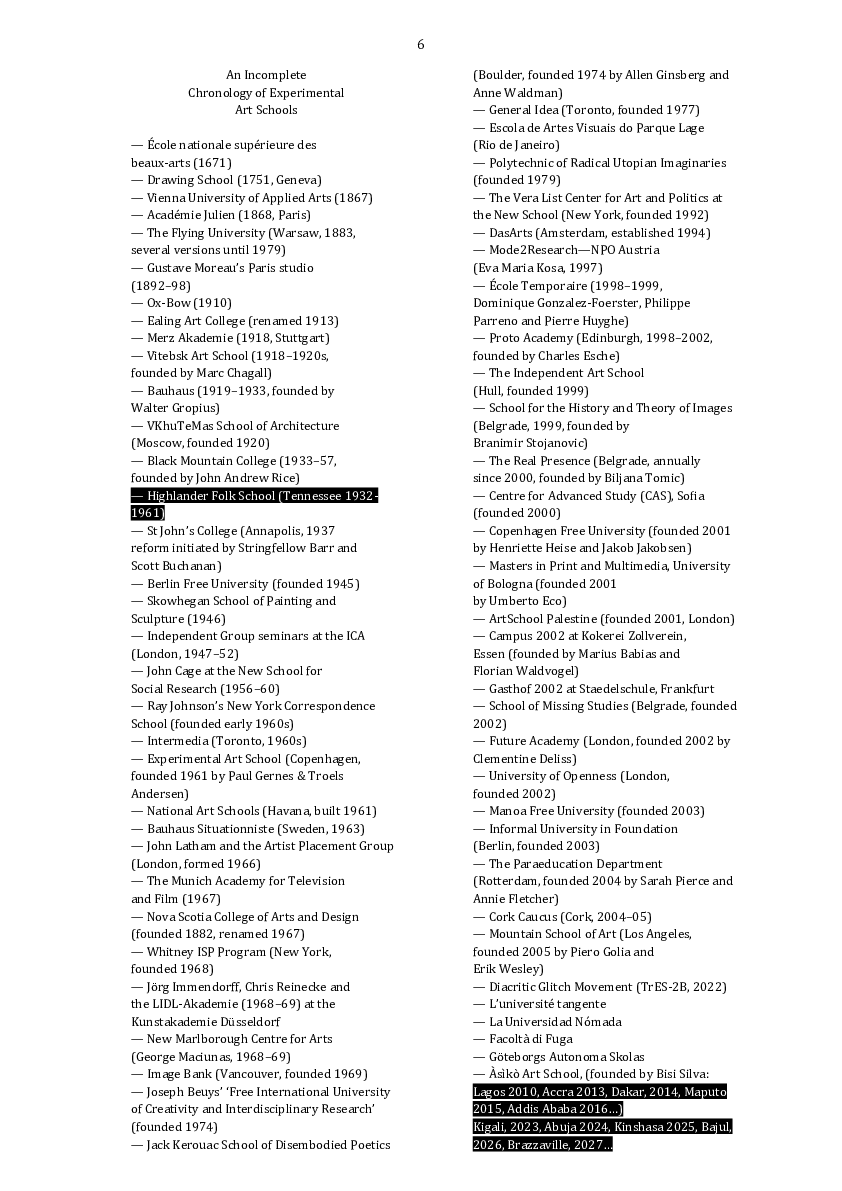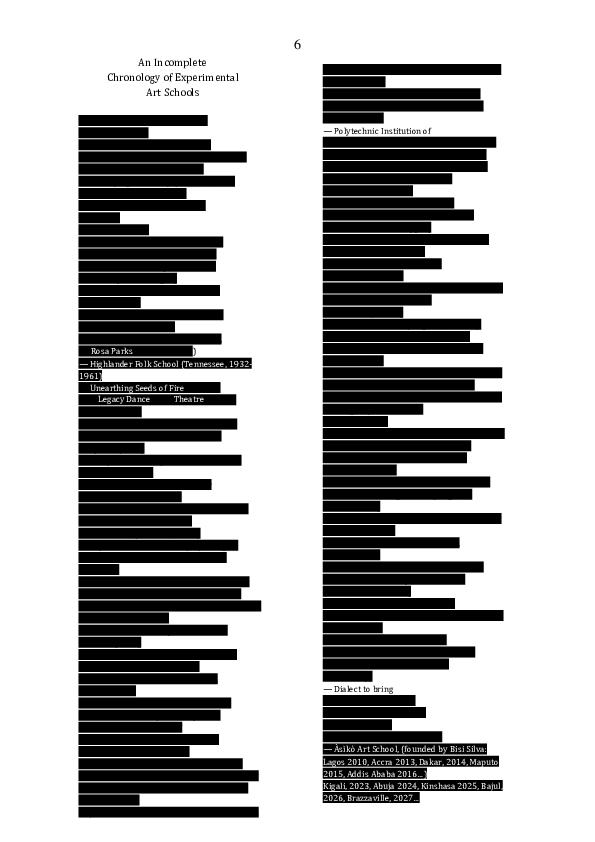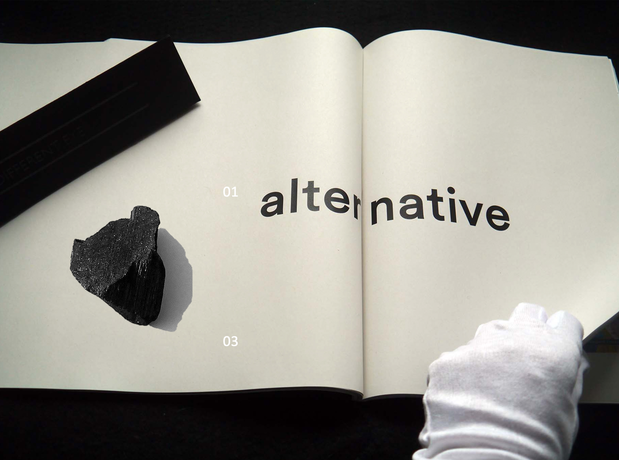As an insight into the research practice, I provide here a short contextualisation of the two texts that are presented on entry into the spatialities exhibition. The text works are intended as voiced poems, that is words that are meant to be heard rather than read. In a place between language and speaking, writing on the art school brings alternative histories, and sounds when it is read. Speaking with authority and inserting oneself with/in the authority of others.
The voice is important in this context as one that should be audible, yet is often overlooked. The words accompany, and are the soundtracks of the vignette, ‘Something’.
Indeed, voicing has its own agency that works in relation to the intentions of the performer and the perceptions of the listener, creating the possibility of discourse.
Trevor Mathison, amended from a conversation at CCA, London, 2023.
G L O S S A R Y
/ɪnˌtəːpəˈleɪʃn/Interpolation
The intentional, essential, and occasionally adventurous interventions and inserts that do not dismantle the archive but awaken and fabulate what exists already but just needs to be seen.
D e f i n i n g the alternative
This exposition page works in dialogue with Chapter 1 Mapping of the written exegesis (go to Chapter 1 of the PDF below). The presented works serve as the introduction for this PhD, engaging in processes of interpolation, intervention and redaction within the archival. These processes entail the exploratory capacities of correction, inscription, and transcription within the archive. Taking Anton Vidokle’s (2006) An Incomplete Chronology of Experimental Art Schools as a provocation to question where alternative pedagogies are located. As forms of knowledge-making, these interventions move through contexts to present a reorientation to time and knowledge and to ask questions from the space of imagination. This page begins the exploration and documents a layered performative practice. No work sits in isolation. Indeed, each of the elements shown is informed by another in a cyclical process of making.
Title: Alternative to What? Exploring Alternative Art Schools Through Spatiality, Participation and Performative Tools
Elle Reynolds
You can find the exegesis on
the Nottingham Trent University Repository
Something
[The Opposite Of Hiding Was Searching]
Something charts the etymology of the term alternative through the interaction of a page-turner with a book of words. The page-turner's hands are enrobed in soft archival gloves.[1] The first pages show a magnified section from Anton Vidokle’s list. Two schools are highlighted, given significance through the white text on black ground. Inverted to slow the reader down. An attempt at a textual description, a rewriting of, and insertion into Vidokle’s chronology is made. A modest disruption as bookends of omitted educational experiments, one former and one that is current, ongoing. The vignette was originally conceived in 2017 and then reworked in 2022.
Defining Something
The components within The Listing Space introduce Anton Vidokle’s An Incomplete Chronology of Experimental Art Schools. The facsimile you view to the left is extracted from the document Notes for an Art School, 2006, reproduced and presented as a single A4 sheet. For practical purposes the font DTL Elzevir 8.70 and 11 is replaced with Cambria, however, the margin, spacing and organisation follow that of the original list.
Reading/Listing as intervention and interpolation
The redacted list: Who does the list centre or omit? Listing is a form of collecting, as such I have collected other educational experiments and narrated these, as a secondary layer over the Vidokle list. In sampling Vidokle’s list, I have reconstructed the original text and durational chronology by simultaneously redacting and conversely expanding the list, I present a recentred narrative.
What is the capacity for surprise? The activating agent is invited to add their own experimental models, known or imagined, conceiving a reconstructed canon and providing other dialogues between experimental models to co-create another story.
Who or what makes history? And how can we engage history further, to historicise something in a different way, to see history as not something that is settled and fixed but is itself doing the critical work of questioning and reformulating questions?
These voiced texts attempt to present a re-reading of his[storical] chronologies and give consideration to the form in which history is presented. The texts consider another system of knowledge dissemination, they resist the perceived accuracy of the written narrative account and academic language.
The pedagogical approaches of Highlander Folk School (1932) are conveyed through lyrical phrasing that foregrounds the significance of teaching through acting, play, and improvisation. The nomadic character of Àsìkò Art School (2010-) is expressed through the intensity and action of sounds, a rhythm that suggests movement, and the distinctive terra firma of a continent.
From these two works, the concept of Scholé Poems emerged as a way to reflect on my direct engagement with the alternatives.[2] Something and Nothing, the first two Scholé Poems are documented here.
[2] Scholé Poems as performed ethnographies, as reflections and as a record of activities. Scholé can mean swarming, gathering, meeting, and pursuing truth. It is also a derivation of school. Kalimtzis, K., 2017. [online] available at: https://apeironcentre.org/an-inquiry-into-the-philosophical-concept-of-schole-leisure-as-a-political-end// [Accessed 28 July 2022]
Part 1
Something
The opposite of hiding was searching
A historical narration
Performers: Page-turner and Reader
FIRE
The House of My Dreams. Why Space?
‘Growing up in a world where black working class and “po’ folk”, as well as the black well-to-do, were deeply concerned with the aesthetics of space, I learned to see freedom as always intimately linked to the issue of transforming space’.
Black vernacular: architecture as cultural practice.
hooks, b., 1995. Art on my mind. New York: The New Press. pp. 145–151.
The N- Space to the A-Space:
Fire \ puppet
Mopping it up and moving building with labour plays and LollyPopPoppa,
LollyPopPoppa,
calling in the one-act play, modelling the education space, fortnightly, forthrightly
Poetry, music, FIRE, JOY
Go giddy up
rotunda
Unearthing seeds, legacy dances, Rosa Parks and Zilphia Mae Horton and FIRE and Fire
See if popcorn will pop
Fire puppet
The space of
in the through and off of sounds, moving through
dramatic acts
Acts
Be live, alive, Songs for social justice
Some day
Out of actions
Framing between heavenly homes
Staging testing resting
Rr rotunda rr r r
Gathering
Pick pick pickin and picketing
Sackarum coalesces
Transmitters and filter
Send the sound out
Reforms reforming
Low frequency
Improvisation
Signal
Signal songs for mapping
The embracing sound
Strike
Labour songs for striking
Agitprop
Immersive
Rotunda Surround
Red abaiting moving
Obstacles to organisation
Energies and wants and chanting dialogues
And
Zip, Zip, Zipper
Here the musing
Rotunda
Rumble Rr
Rr




